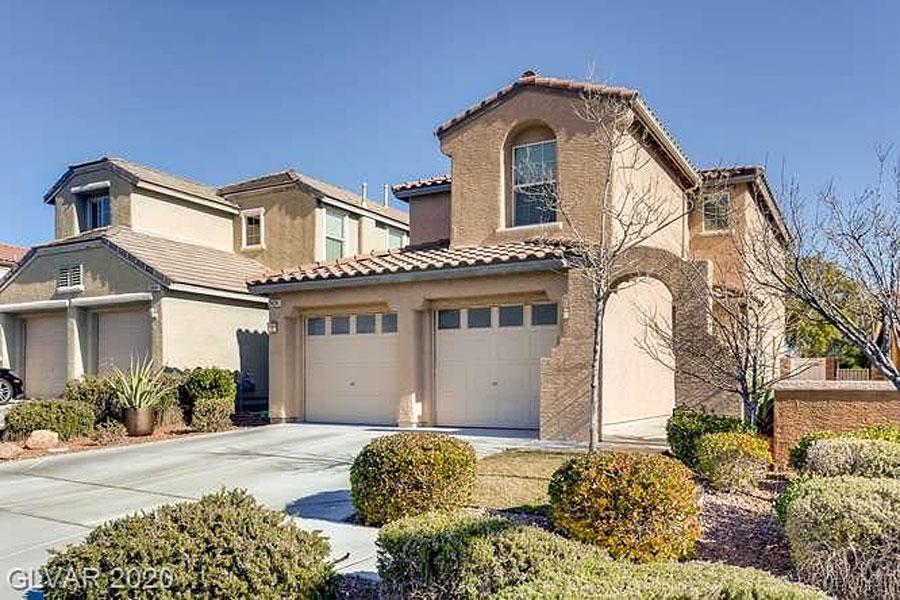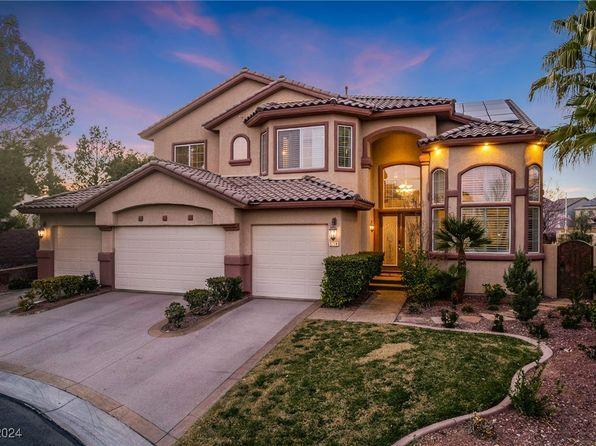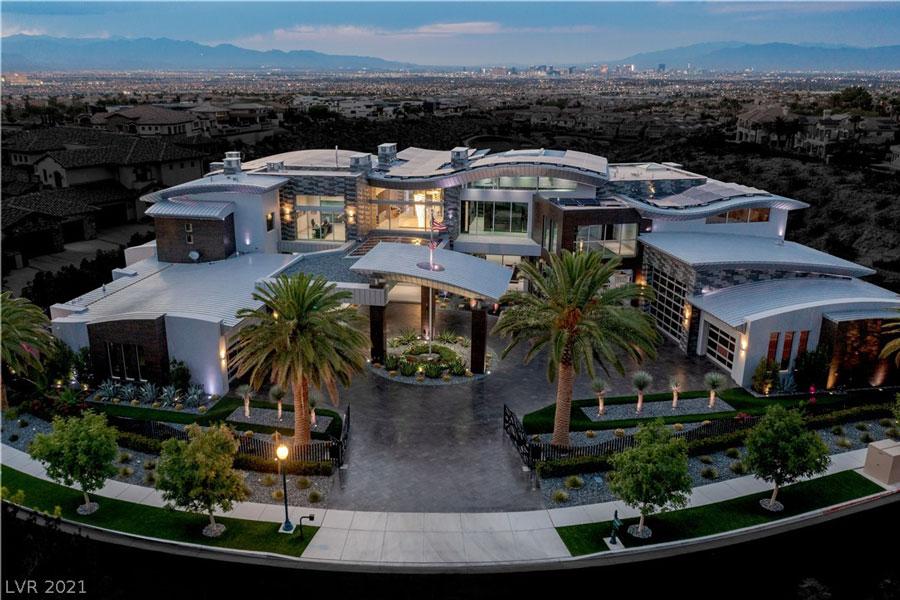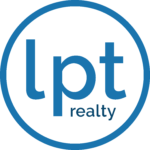Las Vegas Real Estate: Residential Sales Analysis
Nestled in the arid embrace of the Mojave Desert, Las Vegas has long captivated the imaginations of many. Known for its dazzling lights, world-class entertainment, and vibrant nightlife, this desert oasis is more than just a playground for tourists; it is also a burgeoning hub for real estate. As the city continues to evolve, so too does its residential market, reflecting both local and national economic tides. In this article, we delve into the intricate tapestry of Las Vegas residential sales, uncovering trends, insights, and factors that shape the ever-fluctuating landscape. Whether you’re a prospective buyer, a seasoned investor, or simply curious about the dynamics of this unique market, our thorough analysis will provide you with a comprehensive understanding of the forces at play in one of America’s most exciting real estate arenas. Join us as we explore the current state of Las Vegas housing, revealing the stories behind the numbers and the potential pathways to profit in this dynamic environment.
Current Trends Shaping the Las Vegas Residential Market
The Las Vegas residential market is currently witnessing a diverse array of trends that are transforming how buyers and investors approach real estate. One major factor is the increasing demand for energy-efficient homes, driven by a growing awareness of sustainability and utility costs. Features such as solar panels, smart home technology, and high-energy efficiency ratings are becoming essential selling points. Furthermore, the appeal of urban living continues to rise, with buyers seeking properties in vibrant neighborhoods that offer easy access to entertainment, dining, and cultural experiences. This shift towards urbanization has led to a notable rise in mixed-use developments, which seamlessly integrate residential spaces with commercial offerings.
Another trend shaping the market is the evolving preferences of millennials and Gen Z buyers. This demographic is prioritizing flexibility and lifestyle over traditional homeownership models, making rental properties and short-term rentals increasingly popular. The rise of remote work has also changed the game, as many individuals who no longer need to commute are relocating to suburban areas that offer larger homes and outdoor space at competitive prices. Additionally, the ongoing influence of technology cannot be overlooked; virtual tours, online closings, and digital marketing initiatives are reshaping the home buying process, making it more accessible and streamlined. As Las Vegas continues to evolve, these trends will likely accelerate, further defining the landscape of its residential market.

Understanding Buyer Preferences in the Las Vegas Area
In the dynamic world of Las Vegas real estate, understanding what drives buyer preferences is crucial for both home sellers and real estate professionals. The appeal of a home can vary greatly based on several factors, including location, amenities, and price point. Many buyers gravitate towards neighborhoods that offer easy access to entertainment and lifestyle options, such as the bustling Strip, while others may prioritize quieter suburbs with family-friendly facilities. Among the sought-after amenities, features like swimming pools, outdoor spaces, and modern kitchens often top the list, reflecting a desire for both comfort and entertainment within the home.
Additionally, an analysis of recent sales provides further insight into demographic preferences. The following table summarizes key buyer demographics in the Las Vegas area, highlighting their primary considerations:
| Demographic Segment | Primary Considerations |
|---|---|
| Millennials | Proximity to nightlife, open floor plans, eco-friendly features |
| Families | Good schools, safety, parks and recreational options |
| Retirees | Single-level homes, community services, healthcare access |
| Investors | Cash flow potential, property appreciation, proximity to rental markets |
By comprehensively analyzing these preferences, real estate professionals can tailor their strategies to better meet the market’s demands, ultimately facilitating smoother transactions and satisfied clients. Identifying preferences in this vibrant market not only aids in effective marketing but also enhances the overall home buying experience in Las Vegas.

Evaluating Neighborhoods: Where to Invest for Maximum Returns
Investing in real estate requires a keen understanding of local dynamics, and Las Vegas offers a variety of neighborhoods that cater to different demographics and investment strategies. Key factors to consider when evaluating these areas include job growth, housing demand, and amenities. Neighborhoods that are close to employment hubs, quality schools, and entertainment options tend to attract families and young professionals, ensuring a steady demand for housing. Some neighborhoods that currently show promise include:
- Summerlin: Known for its master-planned communities and outdoor spaces.
- Downtown Las Vegas: A vibrant area with a blend of culture and nightlife.
- Henderson: Offers family-friendly amenities and great schools.
Beyond location, understanding the price trends and rental yields is crucial for maximizing returns. Real estate investors should analyze recent sales data and rental market performance to gauge profitability. The following table illustrates the average property prices and rental yields in some of the top-performing neighborhoods:
| Neighborhood | Average Property Price | Average Rental Yield |
|---|---|---|
| Summerlin | $500,000 | 5.5% |
| Downtown Las Vegas | $350,000 | 6.0% |
| Henderson | $400,000 | 5.8% |

Strategies for Sellers to Stand Out in a Competitive Market
In today’s bustling Las Vegas real estate market, establishing a strong presence can make all the difference for sellers looking to attract buyers. To set themselves apart, sellers should focus on enhancing their property’s appeal and creating a memorable experience for prospective buyers. Some effective strategies include:
- Professional Staging: Investing in professional staging can transform a space and allow buyers to envision themselves living there. Well-staged homes often sell faster and at a higher price.
- High-Quality Photography: Using top-notch photography to showcase the property online can capture attention. Consider aerial shots and virtual tours to provide a comprehensive view.
- Targeted Marketing: Implementing a data-driven marketing strategy, such as utilizing social media ads and email campaigns tailored to specific demographics, can effectively reach potential buyers.
Another critical aspect is pricing strategy. Conducting a comparative market analysis can help sellers set a competitive price while remaining appealing. Additionally, understanding buyer psychology and local market conditions is vital. A few tips include:
- Flexibility in Negotiations: Being open to negotiations and considering creative offers, such as leaseback options, can attract buyers looking for unique incentives.
- Enhancing Curb Appeal: First impressions matter; small investments in landscaping or exterior improvements can significantly impact a buyer’s perception.
- Offering Home Warranties: Providing a home warranty can give buyers peace of mind, making your property stand out as a safer investment.
| Element | Impact |
|---|---|
| Staging | Increases interest and perceived value |
| Photography | Captures attention online |
| Market Analysis | Informs competitive pricing |
| Curb Appeal | Enhances first impressions |
Q&A
Q&A: Las Vegas Real Estate – Residential Sales Analysis
Q1: What recent trends have emerged in Las Vegas residential real estate sales?
A1: Recent analysis reveals that Las Vegas has experienced a significant uptick in some areas of residential sales, with demand for single-family homes soaring. The shift towards remote work has led to an influx of out-of-state buyers seeking the city’s affordability and vibrant lifestyle. However, inventory levels remain a challenge, leading to increased competition and higher home prices in desirable neighborhoods.
Q2: How has the pandemic influenced the Las Vegas real estate market?
A2: The pandemic has acted as a catalyst for the Las Vegas real estate market. With many individuals prioritizing access to outdoor spaces and home offices, demand for larger homes with yards has surged. Additionally, low mortgage rates during the pandemic have spurred many buyers into the market, creating a rush that has accelerated price appreciation in many areas.
Q3: What areas in Las Vegas are seeing the most activity in residential sales?
A3: Neighborhoods like Summerlin and Henderson are seeing significant activity, driven by their upscale offerings and family-friendly amenities. Additionally, there’s been increased interest in emerging communities like Inspirada and Skye Canyon, which feature new developments catering to modern living preferences.
Q4: Are there any signs this growth will continue, or are we nearing a peak?
A4: While current indicators suggest robust growth, several factors could influence the market’s trajectory. Analyst opinions vary, with some citing the need for more housing supply to meet demand effectively. Additionally, potential shifts in interest rates or economic conditions could impact buying power and market activity. Monitoring these variables will be key in predicting future trends.
Q5: How does the Las Vegas market compare to other major U.S. cities?
A5: Compared to other major U.S. cities, Las Vegas often stands out for its relatively lower price point and unique lifestyle offerings. While cities like San Francisco and New York have prices that remain significantly high, Las Vegas provides an attractive alternative for buyers seeking more space. The city’s diverse entertainment, dining, and outdoor lifestyle enhance its appeal, making it a hot spot for both buyers and investors.
Q6: What advice do experts have for potential homebuyers looking to enter the Las Vegas market?
A6: Experts advise potential buyers to do thorough research on neighborhoods and remain flexible with their criteria due to inventory constraints. Understanding the current market conditions—especially the competitive nature of desirable areas—is crucial. Being pre-approved for a mortgage and ready to act quickly can greatly enhance a buyer’s chances of securing their dream home.
Q7: What should sellers keep in mind in this evolving real estate environment?
A7: Sellers are advised to focus on enhancing their homes’ appeal to stand out in a crowded market. Key renovations and staging can attract more buyers. Pricing realistically is critical; while homes are selling fast, overpricing can lead to longer market times. Staying informed about local trends and seeking guidance from real estate professionals can help sellers navigate this dynamic landscape effectively.
Q8: How do future developments and infrastructure projects impact the real estate landscape?
A8: Future developments and infrastructure projects play a pivotal role in shaping the Las Vegas real estate landscape. As new residential and commercial projects arise, they can elevate property values in surrounding areas and attract interest from new residents. Improved public transport, road enhancements, and community facilities can also make certain regions more desirable, thus influencing sales dynamics.
Q9: What role does the luxury market play in the larger Las Vegas real estate picture?
A9: The luxury market in Las Vegas is a vital component of the overall real estate scene. High-net-worth individuals are increasingly drawn to upscale communities such as The Ridges and MacDonald Highlands, often seeking lavish amenities and stunning designs. This segment not only signifies the city’s growing appeal to affluent buyers but also stimulates competition and drives up general market prices, reflecting broader economic confidence.
Q10: What resources can buyers and sellers utilize to stay informed about the real estate market?
A10: Buyers and sellers can tap into a variety of resources to stay updated on the real estate market. Local real estate websites, city demographic reports, and market analysis from professional realtors are great starting points. Engaging with online communities and attending local real estate seminars can also provide valuable insights. Additionally, subscribing to newsletters from real estate agencies can keep you informed about trends and upcoming opportunities.
The Way Forward
the Las Vegas real estate landscape presents a dynamic tapestry woven from a myriad of factors influencing residential sales. As we’ve examined, fluctuations in market trends, demographic shifts, and economic indicators all play a crucial role in shaping the future of homeownership in this vibrant city. Whether you’re a potential buyer, investor, or simply an observer of market movements, staying informed is essential to navigating this ever-evolving environment. As the lights of the Strip flicker against the backdrop of a resilient housing market, one thing remains clear: Las Vegas continues to be a place of opportunity and growth. With each shift in the market, new possibilities arise, promising a bright future for all who seek to call this dazzling city home. As we look ahead, let us embrace both the uncertainties and the excitement that define the real estate journey in Las Vegas.


